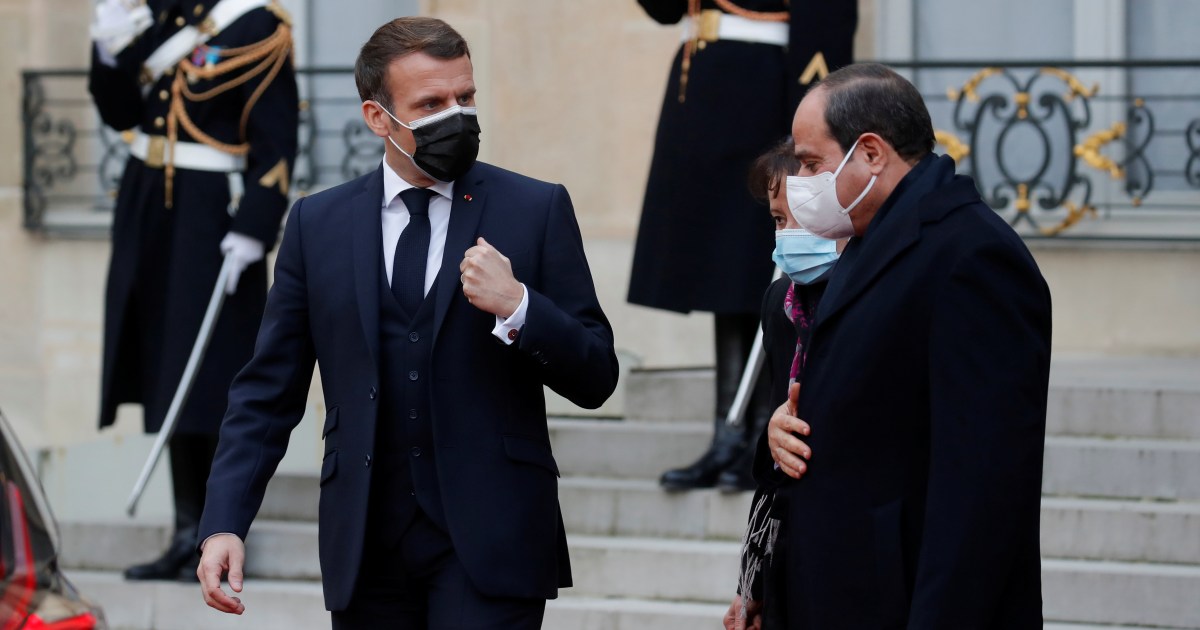Nearly 10 years ago, the Egyptian people rose up against dictatorship and paved the way for the Arab Spring after Tunisia, but after 10 years Egypt turned into a colossal prison in which tens of thousands of political prisoners, including the Muslim Brotherhood, liberals and jurists, are languishing, and the country has come to the top of the list of most implementing countries. Of death sentences in the world.
With these words, Alain Gresh, a journalist specializing in Middle East affairs and director of the French website Orient 21, began an editorial in which he was surprised that almost all of the detainees in Egypt are accused of belonging to a single "terrorist organization", the Muslim Brotherhood, even if it is proven that they are Opponents of this movement throughout their lives.
Gresh believes that the media in this country has also been subjugated, and that it has become in the hands of a handful of mercenaries who are directed by the security services and praise the "president" and his regime relentlessly.
He said that the economic reforms imposed with extreme brutality by the Egyptian army, which mainly benefit senior officers, have undermined the population’s standard of living, and the "military regime" is now the de facto ruler in the Nile Valley.
Stress policy
Under these circumstances - Gresh adds - President Abdel Fattah El-Sisi is received in Paris by French President Emmanuel Macron, and there is no doubt that the latter - as in his visit to Cairo at the end of January 2019 - touched on the issue of political detainees, such as Alaa Abdel Fattah Ahad. The pioneers of the January 25 revolution, Rami Shaath, coordinator of the BDS movement in Egypt.
Contrary to what the Egyptian authorities are trying to show, the pressure policy is bearing fruit, which was recently evident in the release of officials from the Egyptian Initiative for Personal Rights.
However, it is still necessary to show greater determination - Gresh adds - which is not in the cards for France and its allies in the European Union, who have many means of pressure that they do not hesitate to use if necessary against Russia, China or Venezuela.
The author wondered, does Paris appreciate what collusion with this regime, which tramples on the values of democracy, especially the freedom of expression that France claims is the champion of defending, means?
He added, "Was Foreign Minister Jean-Yves Le Drian realizing when he went to Cairo to defend the French vision of" freedom of expression ", the extent of the absurdity of such a move in a country where the slightest remark on social media could lead to imprisonment, without saying anything about it?
Of course, there is no country that bases its foreign policy on defending human rights alone, and Paris justifies its relationship with Cairo by strategic considerations, the basis of which is Egypt's necessary stability "a bulwark against terrorism", which justifies the sale of weapons, some of which are used for internal repression.
Sinai and Libya
Gresh warned that Sinai remains an area outside the central authority, albeit relatively calm, and 7 years after the military coup in July 2013, it does not appear that Sisi is able to end the rebellion that led to extremism and deviation to the Islamic State, despite the presence of Hundreds of thousands of soldiers, despite the French arms.
In Libya - the writer says - Egypt played with fire by supporting retired Major General Khalifa Haftar, which led France to a losing bet that resulted in further fragmenting the country and legitimizing the Turkish intervention presented as a response to Egyptian and Emirati interventions "supported by Paris."
Gresh believes that there are common interests between France and Egypt, some of which are legitimate in the economic and cultural fields, but others are contested, such as contracting with Cairo to manage the immigration file.
And he concludes that we must learn lessons from history. In April 2011, the then French Foreign Minister Alain Juppe said in a self-criticism of French policy, “We must all admit that this Arab Spring was a surprise, for how much we believed that authoritarian regimes are the only bulwark against Extremism in the Arab world, and how much we have used the excuse of the Islamic threat to justify a kind of flattery of governments that trample on freedom and impede the development of their countries.
Today - after 10 years - how do we forget once again that dictatorships are the fertile ground that spawns terrorism and instability ?!

